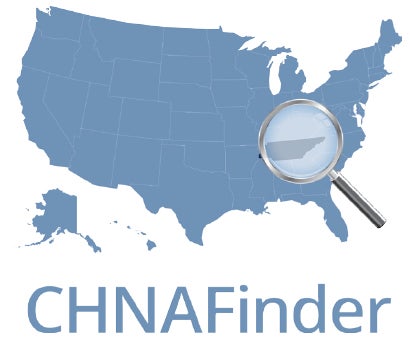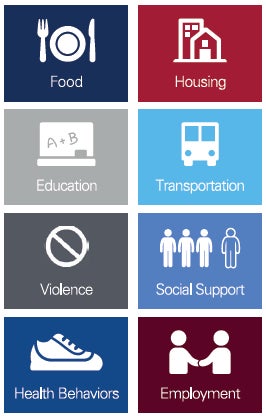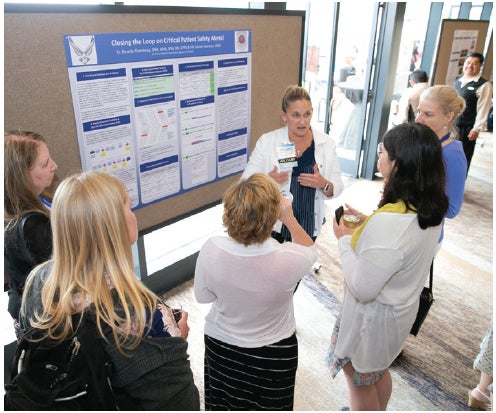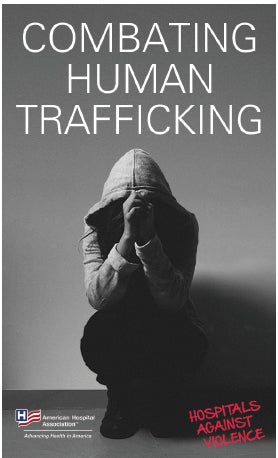Health
The AHA works with hospitals and health systems to develop capabilities they need to care for patient populations, partner with communities, and drive transformational change. Wherever they are on their population health journey, our members can count on us to support the advancement of accountable, equitable care.
In addition to advocating for additional resources and policy changes to combat the opioid epidemic, we are working with a number of government agencies – including the Centers for Disease Control and Prevention and Office of the U.S. Surgeon General – to help educate patients and clinicians on proper opioid use and disposal. We also are participating in the National Academy of Medicine Opioid Collaborative focused on reducing neonatal abstinence syndrome. In addition, our Stem the Tide toolkit provides guidance and information on working with patients, clinicians, and communities. Collaborating with others, we also have worked to raise awareness about the stigma associated with SUD, how it can impact seeking treatment and living in recovery and share best practices.
Research has shown that only 20 percent of health can be attributed to medical care, while social and economic factors − like access to healthy food, housing status, educational attainment and access to transportation − account for 40 percent.
Individuals struggling with these social determinants may experience poor health outcomes, increased health care utilization and increased health care costs. We have created a suite of resources – guides, videos, podcasts, toolkits and more – to help hospital leaders, clinicians and trustees understand and address the social determinants to improve individual health and the health of their communities. Our policy work seeks to ensure that these factors are accounted for in government quality and pay-for-performance programs. For more, visit www.aha.org/center.
 The CHNAFinder is an AHA members-only database with nearly 3,000 community health needs assessments completed in 2012–2016. Members can use this map-based tool to identify and compare trends in priority health needs in their community and state and across the U.S., and explore opportunities to partner with other organizations and community stakeholders to build healthier communities and improve population health. The Community Health Assessment Toolkit walks hospitals through the CHNA process. For more, visit chnafinder.hret.org.
The CHNAFinder is an AHA members-only database with nearly 3,000 community health needs assessments completed in 2012–2016. Members can use this map-based tool to identify and compare trends in priority health needs in their community and state and across the U.S., and explore opportunities to partner with other organizations and community stakeholders to build healthier communities and improve population health. The Community Health Assessment Toolkit walks hospitals through the CHNA process. For more, visit chnafinder.hret.org.
Team Strategies and Tools to Enhance Performance and Patient Safety (TeamSTEPPS®) is an evidence-based set of tools for optimizing patient outcomes by improving communication and teamwork. It includes a comprehensive set of ready-to-use materials and a training curriculum to successfully integrate teamwork principles into any health care system. Teams working with AHA faculty have improved communication and teamwork through courses, webinars, and an annual national conference attended by hundreds of front-line clinical and operational health care managers. For more, visit www.aha.org/TeamSTEPPS.
Violence – in its many forms – is a major public health challenge. The AHA, along with its members, is committed to addressing all forms of violence affecting our staff, as well as the patients and communities we serve. Our Hospitals Against Violence Initiative is sharing examples and best practices with the field, with a particular emphasis on youth violence prevention, workforce violence prevention and combating human trafficking. In addition, the AHA, joined by Catholic Health Initiatives and Massachusetts General Hospital’s Human Trafficking Initiative and Freedom Clinic, recently secured 29 ICD-10 codes to identify and document victims of human trafficking, which will allow hospitals and health systems to better track victim needs and identify solutions to improve the health of their communities. For more, visit www.aha.org/violence.





